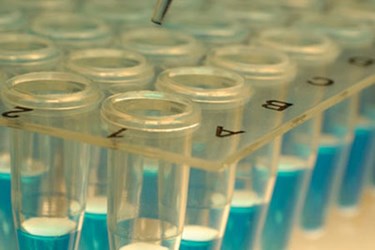Brown University Researchers Discover Chemo Resistant Stem Cells

Researchers at Brown University have found that adipose-derived human stem cells (ASCs) might be highly resistant to methotrexate (MTX), a common chemotherapy drug. ASCs can ultimately become bone and other vital tissues throughout the body, which could be key for researchers looking to protect bone tissue from the damage caused by MTX treatment. MTX, which is used to treat a number of different cancers including acute lymphoblastic leukemia, causes the loss of bone density and has an adverse effect on bone marrow derived stem cells.
“Kids undergo chemotherapy at such an important time when they should be growing, but instead they are introduced to this very harsh environment where bone cells are damaged with these drugs,” said Olivia Beane, a Brown University graduate student in the Center for Biomedical Engineering and lead author of the study. “That leads to major long-term side effects including osteoporosis and bone defects. If we found a stem cell that was resistant to the chemotherapeutic agent and could promote bone growth by becoming bone itself, then maybe they wouldn’t have these issues.”
Beane examined how MTX affects stem cells and certain tissues in the body and said that the resistance of certain stem cells to the drug’s toxicity could mean new possibilities in the drug development realm. The researchers are now looking to find a way to make their study practical for doctors that are treating patients suffering from cancer. The next step is to test ASC survival in animal trials, where researchers will determine how the cells fare in mice that are also hit with the chemotherapy drug.
The study was published in the journal, Experimental Cell Research.
